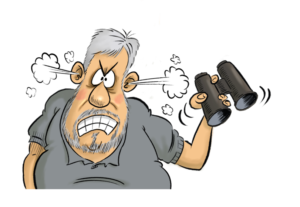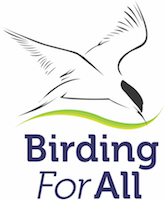GOB 121 Killing the Golden Goose
This article first appeared in Birdwatching Magazine Autumn 2019
A study that put together data across 91 countries from scientific papers and government reports noted that biodiversity is below safe levels across more than half of world’s land and that habitat destruction has reduced the variety of plants and animals to the point that ecological systems could become unable to function properly.
Land conversion is the biggest driver the loss of biodiversity as forests are cut down for farm fields, fields turned into cities and land lost to factories and roads. But so is the overexploitation of water supplies, increasing pollution, over-harvesting, invasive species and climate change.
The collapse threatens human health and all agricultural production is at risk because genetic diversity in crop and livestock species is declining. The change in land use and management, such over quick re-planting and a reliance on pesticides, herbicides and other agro-chemicals exacerbates the risks as do ever-expanding monocultures. Just nine species (wheat, maize, rice, potatoes, soybeans, sugar cane, oil-palms, sugar beet and cassava) account for two-thirds of all crops, with the other 6,000 cultivated plant species are declining and wild food getting scarcer. This reliance on a tiny number of species means more susceptibility to disease and climate change
Pollinators, essential services to 75% of the world’s crops, are under threat. As well as the well-documented decline of bees and other insects, the report noted that a growing number of vertebrate pollinators, (mostly bats and birds), were threatened with extinction. There has already been a debilitating loss of soil biodiversity in forests and grasslands.
In the oceans things are no better off as diversity is disappearing along coral reefs, amongst mangroves and on seagrass beds. We make it worse as one third of fishing areas are being overharvested.
Many species that are indirectly involved in food production, such as birds that eat crop pests and mangrove trees that help to purify water, fish, fungi and plants are less abundant than in the past.
The need to change the way food is produced is urgent. If we ignore it now we cannot put things right later. When loss of biodiversity happens, as it has through massive climate shifts in past geological eras it takes hundreds of thousands, if not millions of years to become re-established. We teeter on the edge of ecological Armageddon, once tipped over the edge there is no way back!
The evidence is there as we are already aware of a dramatic plunge in insect numbers. For example, 75% of flying insects in Germany’s nature reserves have vanished in the last quarter of a century. 10% of UK wildlife species face extinction right now. In a decade France’s bird populations have plummeted. Everywhere pesticides are poisoning almost all habitats. Biodiversity is already below safe levels across more than half of world.
We have corralled the golden goose and force fed her, thinking that we can go on increasing the number of golden eggs that way. Instead we are strangling her with invasive species, choking her on pollution and making her infertile with a chemical cocktail. Far from re-wilding the planet and championing biodiversity chemical companies continue to pressurise governments to relax constraint on the production of the very things that are killing the bees. The rush to palm oil goes on apace destroying evermore forests. Instead of going back to seasonal foods and rotating crops we insist that the supermarkets are packed with everything all the time increasing airfreight and cash-cropping.
Every one of us is being irresponsible and selfish. We feast on golden eggs condemning our children to famine and a world without any geese at all.





